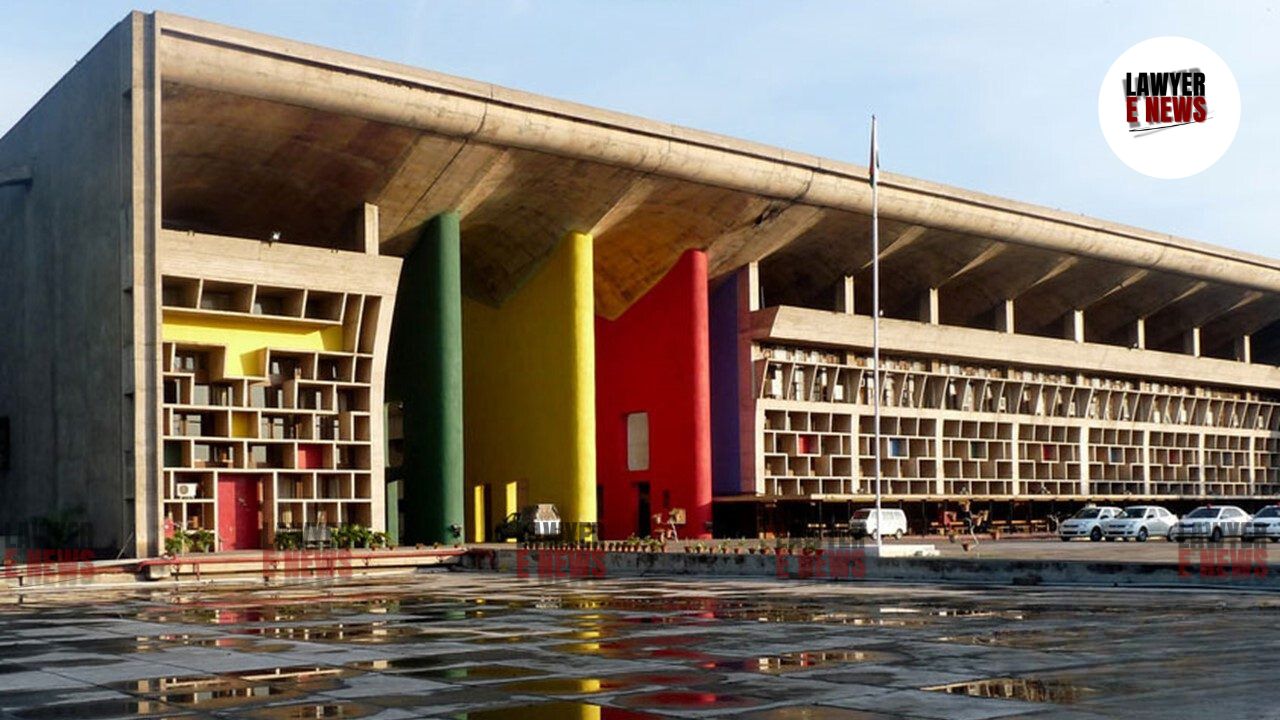-
by sayum
14 February 2026 2:22 PM



Punjab and Haryana High Court granted regular bail to the petitioner, Lali Singh, accused under Section 22 of the Narcotic Drugs and Psychotropic Substances (NDPS) Act for alleged possession of intoxicating tablets. Justice Sandeep Moudgil highlighted the petitioner’s prolonged detention, the presumption of innocence, and the constitutional right to a speedy trial under Article 21 of the Constitution, emphasizing that these factors favored granting bail. This decision underscores the judiciary’s duty to ensure fair and humane treatment in pre-trial detention.
Lali Singh, along with co-accused, was arrested following an FIR on July 20, 2023, alleging possession and sale of intoxicating tablets in Barnala. A search led to the seizure of approximately 1,000 tablets found in a polythene bag reportedly carried by the co-accused, while Singh was allegedly involved in the sale. Although two co-accused were previously granted bail, Singh remained in custody for over 15 months, prompting him to seek bail based on prolonged detention and trial delays.
The Court underscored that bail should be the rule and detention the exception, citing the petitioner’s lengthy pre-trial incarceration of 15 months without significant trial progress. The Court noted that only 3 of the 9 prosecution witnesses had been examined and observed that continuing to detain Singh would serve no purpose.
Referring to the Supreme Court’s ruling in Dataram vs. State of Uttar Pradesh, which emphasized that “grant of bail is the general rule and putting persons in jail or prison is the exception,” Justice Moudgil reinforced that the extended detention without trial contravened principles of legal fairness.
The Court cited Article 21 of the Constitution, which guarantees the right to a fair and speedy trial, observing that prolonged pre-conviction detention infringes on human dignity and is incompatible with the Constitution’s mandate for reasonable, fair, and just legal procedures. Justice Moudgil noted that “detaining the petitioner indefinitely without timely trial proceedings risks violating fundamental rights,” a stance supported by the Supreme Court’s decision in Hussainara Khatoon v. Home Secretary, State of Bihar.
The Court also emphasized that evidence and allegations in the current case must be evaluated independently, regardless of the petitioner’s prior FIRs, reiterating that bail should not be automatically denied based on criminal antecedents alone.
Justice Moudgil considered that two co-accused had already received bail and that no further recovery of evidence was required from Singh, noting that keeping him in custody would not advance the investigation. The Court also reiterated the legal principle that every accused is presumed innocent until proven guilty, observing that “pre-trial detention must not become a form of punishment” before a conviction is secured.
On the Presumption of Innocence: “A fundamental postulate of criminal jurisprudence is the presumption of innocence, meaning a person is believed innocent until proven guilty.”
On the Right to Bail and Human Dignity: “A humane attitude is required in judicial discretion, including a respect for the dignity of the accused, the constitutional guarantee of Article 21, and to avoid the issue of overcrowded prisons.”
The High Court granted regular bail to Lali Singh, directing his release upon furnishing adequate surety bonds to the satisfaction of the trial court. The Court emphasized that this bail order should not influence the case’s merits, leaving the determination of guilt to be addressed at trial. Justice Moudgil’s decision reflects a commitment to upholding constitutional rights and judicial fairness, especially in cases involving extended pre-trial detention.
This ruling underscores the judiciary’s role in safeguarding constitutional rights within the criminal justice system, stressing that bail should generally be granted, particularly when trial delays risk unduly punishing unconvicted individuals. The decision serves as a reminder for courts to exercise their discretion judiciously, ensuring a balanced approach that respects both the accused’s rights and the justice process.
Date of Decision: November 5, 2024
